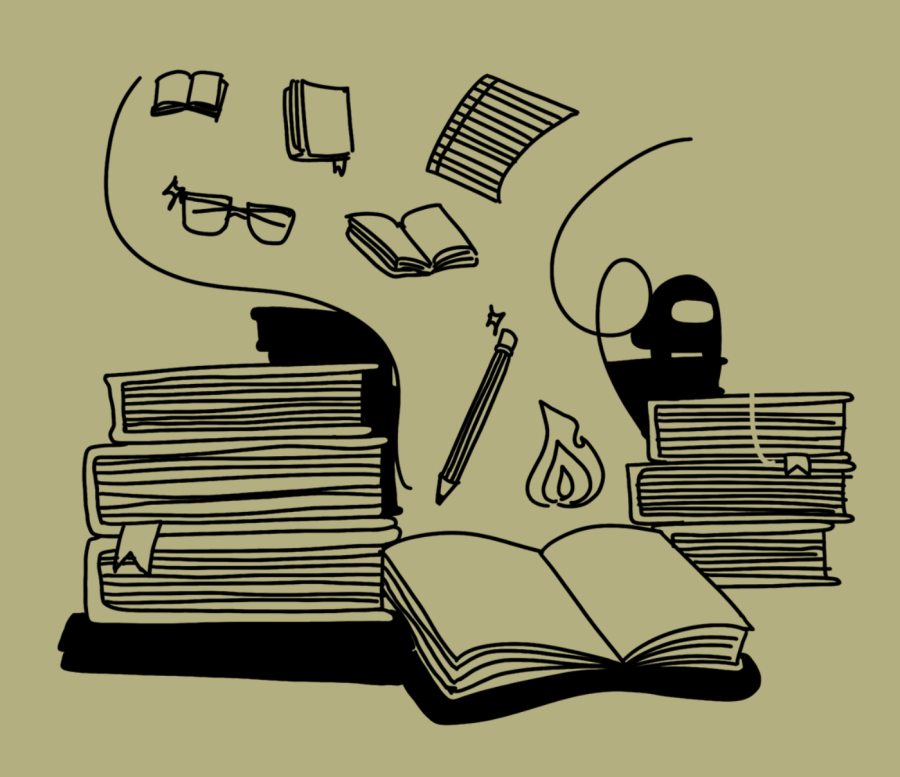The Comprehensive Guide to IB Italian A Language and Literature
f you have chosen to study IB Italian A Language and Literature, you are embarking on a fascinating exploration of the Italian language and its literary works. This comprehensive guide will provide you with valuable information about the course, its components, assessment criteria, and tips for success. Let's delve into the world of IB Italian A Language and Literature!
Understanding the Course
IB Italian A Language and Literature is a course that combines the study of language and literature in the Italian language. It aims to develop your language proficiency, critical thinking skills, and appreciation for Italian literary works. Throughout the course, you will engage with a variety of texts, including prose, poetry, drama, and non-fiction.
Components of the Course
The IB Italian A Language and Literature course consists of several components that contribute to your overall learning and assessment:
Language in Cultural Context
In this component, you will explore how language is used in different cultural contexts, such as literature, media, and society. You will analyze the ways in which language reflects and shapes cultural identities, perspectives, and values.
Textual Analysis
The Textual Analysis component focuses on the study of literary texts written in Italian. You will analyze the themes, stylistic features, and narrative techniques used by authors to convey their messages. Through close reading and critical analysis, you will deepen your understanding of the texts and their literary significance.
Literary Genres
The Literary Genres component examines the characteristics, conventions, and techniques of various literary genres. You will explore different genres, such as novels, poetry, and drama, and analyze how authors employ specific literary devices and structures to create meaning.
Options
The Options component offers a selection of topics or authors for further exploration. You will choose one option that aligns with your interests and preferences. This component allows you to delve into a specific area of Italian language and literature in more depth.
Assessment
The IB Italian A Language and Literature course is assessed through various components, including written assignments, oral presentations, and examinations. Your work will be evaluated based on criteria such as language proficiency, analysis and interpretation of texts, organization and coherence, and critical thinking skills.
Tips for Success
To excel in IB Italian A Language and Literature, consider the following tips:
Read Extensively
Read a wide range of Italian literary works, both from the prescribed texts and beyond. Explore different genres, authors, and periods to develop a comprehensive understanding of Italian literature. Reading extensively will enhance your language skills, expand your vocabulary, and expose you to different writing styles.
Analyze and Interpret
Develop your analytical and interpretive skills by engaging in close reading of literary texts. Pay attention to the themes, symbols, and literary devices employed by authors. Consider the historical, cultural, and social contexts in which the texts were written, and reflect on the deeper meanings and messages conveyed by the authors.
Enhance Language Proficiency
Work on improving your language proficiency in Italian. Practice speaking, listening, reading, and writing in Italian on a regular basis. Engage in conversations with native speakers, watch Italian films, listen to Italian podcasts or music, and immerse yourself in the language as much as possible.
Participate Actively
Participate actively in class discussions, group activities, and literary analyses. Share your interpretations, insights, and questions about the texts. Engaging with your peers and teacher will not only deepen your understanding but also expose you to different perspectives and interpretations.
Seek Additional Resources
In addition to the prescribed texts, seek additional resources to expand your knowledge and understanding of Italian language and literature. Consult literary criticism, attend literary events or conferences, and visit reputable websites dedicated to Italian literature. These resources will provide you with different insights and perspectives.
FAQs
-
Is it necessary to be fluent in Italian to excel in IB Italian A Language and Literature?
While fluency in Italian is beneficial, it is not a requirement to excel in the course. The course aims to develop your language proficiency along with your analytical and interpretive skills. With dedicated study and practice, you can improve your Italian language skills throughout the course.
-
Can I choose my own literary texts for the course?
No, the IB Italian A Language and Literature course has prescribed texts that you must study. These texts have been carefully selected to provide a comprehensive representation of Italian literature and to meet the course objectives.
-
What resources can I use to expand my knowledge of Italian literature?
Apart from the prescribed texts, you can explore literary magazines, anthologies, and reputable websites that focus on Italian literature. Reading literary criticism and engaging with cultural and historical resources related to Italian literature can also deepen your understanding.
-
How can I improve my oral presentation skills for the course?
Practice delivering oral presentations on the literary texts you study. Use visual aids, articulate your thoughts clearly, and engage your audience effectively. Seek feedback from your teacher and peers to improve your presentation skills.
-
What is the significance of studying Italian language and literature?
Studying Italian language and literature provides insights into the rich cultural heritage of Italy, its history, and its contributions to the world of literature. It also develops your language proficiency, critical thinking skills, and appreciation for the power of words and storytelling.
Conclusion
IB Italian A Language and Literature offers a unique opportunity to explore the Italian language and its literary works in depth. By following the tips provided in this comprehensive guide, engaging actively in your learning, and seeking additional resources, you will be well-prepared to excel in the course. Embrace the beauty of Italian language and literature, and enjoy your journey of linguistic and literary discovery!

 By
By


